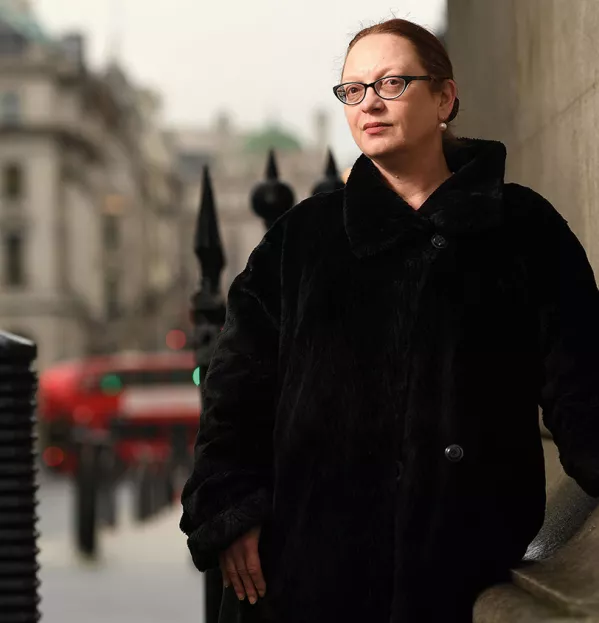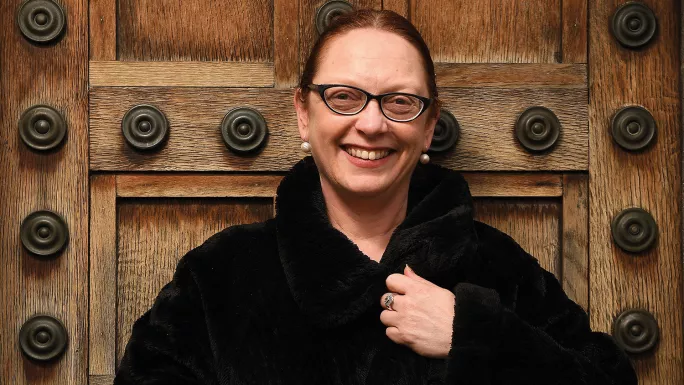‘No one is advocating for the academies sector - it’s very beaten’

When a minister wants to know what the academy system wants, who do they call?
The suspicion is that at the moment only a small circle of favoured academy leaders has the ear of government.
But with the academy sector now responsible for the education of almost half of all pupils in England - and 2,700 academy trusts operating across the country, there appears to be no one to speak for the sector as a whole.
Leora Cruddas wants to change this. In September, she took over as chief executive of Fasna (Freedom and Autonomy for Schools - National Association), which has, in one guise or another, been championing the cause of school autonomy since 1992.
Now Cruddas wants to transform it into a trade association that can give the academy sector the voice it has been missing.
“I want a repositioned, reshaped Fasna to be that body that the ministers call in when they want to understand what the newly autonomous sector wants, how it feels, how it wants to influence and shape policy, and also - let’s face it - to advocate for that sector,” she says.
“No one is advocating for that sector at the moment. It’s very beaten, isn’t it?”
The issues she is concerned about today - how schools are governed, what powers they have, how they are funded - are of a very different order to those that confronted her when she began her own teaching career.
Cruddas grew up in South Africa under apartheid and was taught in white-only schools that were “obviously much better resourced, much more privileged” than those for non-whites.
She always wanted to be a teacher - although she cannot pinpoint why - but refused to work in the segregated education system.
Instead, she taught English in a school in the Alexandra township in east Johannesburg, funded by international charity money. Based in a community hall, and with “no infrastructure”, it sought to give opportunities to young black people who wanted careers in science, technology, engineering and maths.
By the time it closed, when the NGO money had left the country with the end of apartheid, Cruddas had become “politically, very interested in desegregation, and more than desegregation, inclusion”.
She moved to East London to teach in Newham, “one of the international beacons of inclusive education”.
“To a large extent, I left my heart in East London,” she says today.
Her new role at Fasna has tied Cruddas intimately to the cause of school autonomy. It is a concept that is often set in opposition to the local authorities that the DfE says “control” maintained schools, and is usually associated with the right of the political spectrum. Cruddas’ background as a council officer and union official may, therefore, come as a surprise.
A tale of two epochs
She spent five years as director of education at Waltham Forest Council, in north-east London, followed by a year in a similar role at Harrow, in the north-west of the capital.
Cruddas’ own conversion to the cause of school autonomy came while she was at Waltham Forest, where she underwent what she describes as a “growth journey” between “two epochs of school improvement”.
In the first epoch, the key to school improvement was thought to lie outside schools - usually in local authorities. For Cruddas, this ended up with council resources being used to “prop up” a school before an Ofsted inspection, rather than securing sustainable improvement.
“The second epoch,” she explains, “assumes that school improvement expertise is in the school system, and school leaders are primarily responsible for improving the schools they run or the group of schools they run. No one else has that responsibility.”
At Waltham Forest, she helped to create more of an intervention model, stepping in early to prevent failure, and partnering schools in need with strong neighbours. She worked closely with local head Steve Lancashire, the now-knighted chief executive of Reach2, the largest primary-only academy trust.

After a short period at Harrow Council, she spent four years as director of policy and public relations at the Association of School and College Leaders, where she had a key role in drawing up its Blueprint for a Self-Improving System, published shortly before the 2015 general election.
Eighteen months in the making, it was, she says, a “sector-led White Paper for the education system”, and something she remains “very proud of”.
So why move on from the ASCL, and “the best job I have ever had in my life”? Although a strong supporter of trade unions, Cruddas began to identify the need for a different type of body to fill a gap that unions, by their very nature, are not designed to fill.
“There is a need for a trade union and there is a need for a sector body, and what I want Fasna to become, and what Fasna is ideally set up to become, is the sector body for the emerging landscape of fairly new autonomous schools.” She has three aims for Fasna: to advocate for the sector, to influence policy and to provide services.
One irony of the academy system is that, despite promising more autonomy for schools, some have found that, within a multi-academy trust, they have less freedom than ever.
Does Cruddas have any concerns about this? “None at all,” she answers without hesitation.
“Autonomy is not the right of adults and institutions. We need to look at where decisions are best made to have the most benefit for children and communities.
“What you can’t do is hold on to the autonomy for the sake of the institution or adults if decisions are not best made at that level.”
Advocating sector-led guidance
The world of academies is large and diverse, but when it makes national news, it is often for the wrong reasons, usually focused on money: CEO pay packets and alleged misuse of public money. They are issues any trade association for academy trusts will need to confront.
Cruddas believes that concerns about high executive pay are best addressed by sector-led guidance rather than legal regulations, while better training and governance will, she says, address the “few instances of failure” that have seen inappropriate payments being made to academy leaders or people and organisations linked to them.
This is something Fasna is already in a position to address, having recently won Department for Education contracts to run two national governance development programmes for schools.
But is training and improved governance enough? Is there something intrinsic in autonomy itself that will always lead some people into temptation?
It is an idea Cruddas decries, saying that she came across “some fairly significant issues of financial probity” when she worked in local government. “I don’t think it’s anything to do with autonomy.”
Financial misconduct is not the only label often attached to school autonomy that Cruddas feels uncomfortable with. The policy’s roots go back to the Thatcher government in the ’80s and this often means that the idea, and by extension Fasna, is associated with right-wing politics.
But Cruddas points out how academies were first introduced by New Labour, adding: “The political appropriation of policy positions is endemic. I think what an organisation like mine needs to do is avoid those binary political oppositions and look at where the evidence is taking us, and argue from the evidence.”
You need a Tes subscription to read this article
Subscribe now to read this article and get other subscriber-only content:
- Unlimited access to all Tes magazine content
- Exclusive subscriber-only stories
- Award-winning email newsletters
Already a subscriber? Log in
You need a subscription to read this article
Subscribe now to read this article and get other subscriber-only content, including:
- Unlimited access to all Tes magazine content
- Exclusive subscriber-only stories
- Award-winning email newsletters